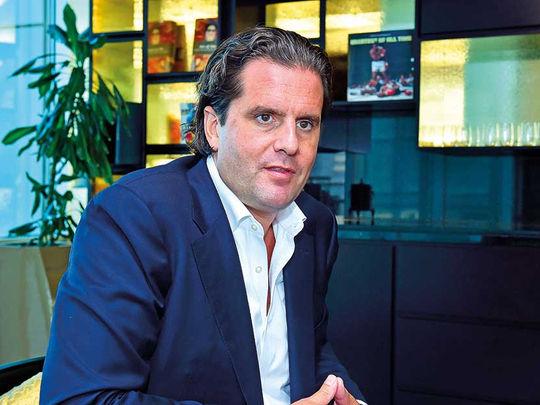
Dubai: Feeling down over declining advertising spending? Well then, get used to it. And while you do, just make sure to get out there and win over new clients.
Ad agencies need to stop moping and get back to what defined them in the past — that is, churning out cutting-edge creative work. Done right and in enough numbers, chances are they could even compensate for the lower returns from their media-buying operations. And be in a position to take on the disruption brought on by Google and Facebook in the way the ad industry works.
“If you look at the Middle East over the last four years, your existing clients have shrunk their media spend,” said Carter Murray, CEO of FCB Global, which operates one of the biggest ad agency networks in the world. “That’s an area of concern.
“But we are one of the Top 10 networks in the world... Whether we like it or not, we are a scale business with around 8,000 people. What I want above all else is for us to be a creatively led organisation. I want us to be an organisation where people want to run to work in the morning not walk to work in the morning.
“Off the back of these two things, I think we will help our clients with their businesses in ways that maybe they haven’t even thought of, I think we will have a successful business.”
Murray has done the hard yards, so to speak. He was brought on board four years ago when growth was stalling at the agency (then known as DraftFCB). He didn’t go in for sweeping changes and instead refocused the network’s energies around getting the creative part just right. Campaigns for the likes of Levi’s, Vodafone and Nivea. It has also been particularly effective on health care-related messaging.
“When I arrived there were some companies that were not part of what I thought our future core offering would be,” said Murray. “So the amount of investment that went there was more limited. And there were other markets where it was clear that if we want to be a global network, we had to [invest]. Even if the operation wasn’t going well, I would invest. Not just money, but time, in making sure we were going to grow.”
But can the big, old-school agency networks still cut it in a digital-first world? “When you say legacy and you say big and traditional even your body-language is about big, cumbersome and large,” said Murray. “I don’t think large companies need to be cumbersome. Our whole strategy is not to be a large, centralised, corporate set-up like some of the other ad agency networks and holding companies.
“Our approach is very much bottom-up; to have very strong local management teams and very creative nimble entrepreneurial teams tied together by lots of different things. But essentially a culture that we all believe in.
“I think that it’s possible to build an organisation that is nimble and fast and creative if you have the right vision. And that’s what we are trying to do... and it’s working, thank goodness.”
Recent account wins seem to confirm the trajectory. These include BMW in the UK and Canada, part of 250 pitches worldwide that it won last year. This includes the 80 in health care, “separate from the advertising”.
“We won a global pitch against some of the biggest networks in the world for Clorox, and that was a wholesale pitch,” said Murray. “It was a client that had been with the agency for several decades and they had decided they wanted to make a change.
“If you look at India, we took Horlicks out of JWT that had it for 40 or 50 years. That was a game-changing win for the perception of our agency. It was the advertising account but it was huge.
“Clients today need solutions as they have enough problems that they are facing. They want solutions, they don’t want sales. So when we win new business I think what we try to do is double down and make sure that we over-deliver on that account.”
Walking the fine line advertising in today’s America
Brands these days have to factor in politics in the way they address any issue. There is no getting away from that.
“The political climate in America has made it more complicated for brands to grow in the market,” said Carter Murray of FCB Global. “You will have to be very careful not to be caught in what I call the washing machine, where you can get politicised as a brand. If you are a mainstream brand, [you] can easily fall into one of the two camps and have a very very adverse effect on your sales.
“People are optimistic about next year but I’m yet to see that investment really open up and start to make a really substantial investment beyond what we’ve already committed to next year.”











